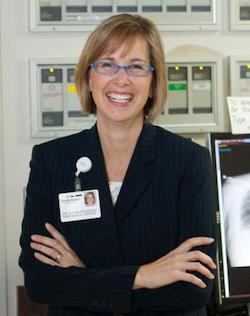About
Saria Saccocio serves as the President of Proactive MD, an innovative direct primary care company that cares passionately about helping people live healthier lives, partnering with employers, and driving down health care costs. Saccocio has demonstrated a consistent history of leading award-winning programs and improving patient care and safety across the continuum as a Chief Medical Officer for various health systems. She received her Doctor of Medicine from the University of Florida, and her Executive Master of Health Administration from the University of North Carolina-Chapel Hill. She completed her Family Medicine residency at the University of Miami. She continues to serve patients at the Greenville Free Medical Clinic. She has collaborated with Lucia Gonzales, associate director of research with the Clemson University School of Nursing, supporting advanced practitioners’ scholarly initiatives including awarded seed grant for recognizing patient barriers to patient Advance Directives and a program to optimize opioid use while preventing medication-associated constipation. Becker’s Hospital Review has recognized Saccocio as one of the top 100 Hospital and Health System CMOs to Know and she has been elected to the Alpha Omega Alpha Medical Honor Society. Her extensive civic and community involvement has included serving with many organizations such as: the Modern Healthcare Women Advisory Board, board member for the South Carolina Hospital Association, United Way of Greenville County; Greenville Free Medical Clinic; Big Brothers Big Sisters of the Upstate; the South Carolina Academy of Family Physicians Board; and is an alumna of the Women’s Leadership Institute and the Diversity Leadership Institute at Furman University.
How their research is transforming health care
Culturally, racially, and ethically (CRED) older adults are the fastest growing populations in the United States. They experience critical disparities in end-of-life (EOL) planning, resulting in higher rates of intensive treatments and increased financial/emotional burdens. Interventional trials in EOL planning are rare and often focus on general populations. Older age, chronic disease, a regular source of care, lack of awareness are associated with not having an advanced directive. A CRED-sensitive EOL plan may facilitate patient-centered decisions about desired medical interventions avoid extensive—and expensive—measures to sustain life in the face of death and improve the quality of EOL care. The volume of EOL conversations performed in the primary care offices is low. There is a gap in the literature about the barriers and facilitators of these conversations. The purpose of Saccocio's research was to investigate the barriers and facilitators in increasing EOL conversations from the perspective of the providers and to assess EOL planning attitudes of the elders. Their study inadvertently captured a unique perspective of providers who had available to them the scheduling solely of virtual conversations between provider and patients—a response necessitated by COVID prevention strategies. Findings will inform the EOL process. Adaptation, testing and fabrication of a toolkit of support materials to execution of an EOL plan developed to implement the research study will add to the provider knowledge of CRED EOL conversations in Appalachian South Carolina and expand the number of providers engaged.
Health research keywords
Primary care, family medicine, advance directives, end-of-life, compassionate opioid management

